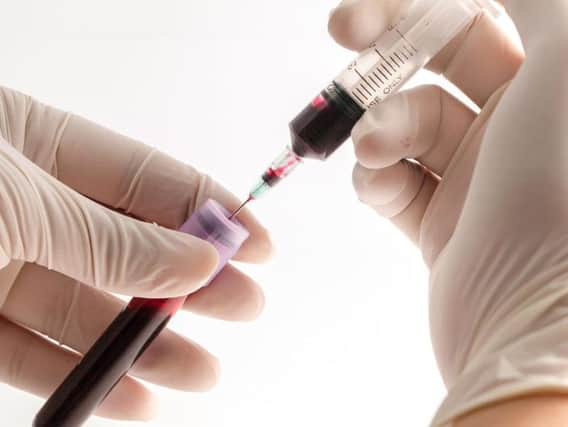Blood thinner warfarin lowers cancer risk


The oral medicine taken by millions of Britons to stop blood clotting when diagnosed with deep vein thrombosis, pulmonary embolus, atrial fibrillation or if they have had a mechanical heart valve fitted.
Now a new study found it was linked with lower risk of any cancer and of three of the most common cancers, prostate, lung, and breast but not bowel cancer.
Advertisement
Hide AdAdvertisement
Hide AdBut in those patients prescribed warfarin for atrial fibrillation, an irregular and often abnormally fast heart rate, it lowered the risk for all cancers and bowel cancer too.
Professor James Lorens of the University of Bergen said: "Warfarin is a widely used anticoagulant prescribed to as many as 10 per cent of adults in Western countries.
"Studies disagree on whether warfarin is associated with cancer.
"Any association between warfarin and cancer would be important to identify given the availability of newer non-warfarin anticoagulants.
Advertisement
Hide AdAdvertisement
Hide Ad"This study investigates the association between warfarin use and cancer incidence in a large, unselected population-based cohort."
The study used the medical records of 1.25 million Norwegians born between 1924 and 1954 who were residing in Norway from January 2006 to December 2012.
Warfarin use was defined as taking at least six months of a prescription and at least two years from first prescription to any cancer diagnosis within the seven years.
Of the 1,56,725 persons in the cohort, 607,350 or 48.3 per cent were men and 649,375 or 51.7 per cent were female.
Advertisement
Hide AdAdvertisement
Hide AdOf these 132,687 or 10.6 per cent had cancer, 92 942 or 7.4 per cent were prescribed warfarin and 1,163,783 or 92.6 per cent were nonusers.
Warfarin users were older, with a mean age of 70.2 years, and were predominantly men - 57,370 or 61.7 per cent - compared with nonusers, who had a mean age of 63.9 years and were mostly women - 613,803 or 52.7 per cent.
Protection
The cancer risk was measured by the incidence rate ratio (IRR) with an IRR less than 1.0 suggesting protection from cancer.
Among warfarin users and compared with nonusers, there was a significantly lower age- and sex-adjusted incidence rate ratio (IRR) in all cancer sites - IRR 0.84 and in prevalent organ-specific sites - lung 0.80, prostate, 0.69 and breast 0.90.
Advertisement
Hide AdAdvertisement
Hide AdThere was no observed significant effect in colon cancer - IRR 0.99.
In a subgroup analysis of patients with atrial fibrillation or atrial flutter, the IRR was lower in all cancer sites - IRR 0.62 and in prevalent sites - lung, 0.39, prostate 0.60 , breast, 0.72 and colon 0.71.
Prof Lorens noted the study did not collect information on other medications or risk factors such as diet, weight or smoking that could influence cancer development .
Prof Lorens said: "Our results document a lower incidence of cancer associated with warfarin in a population-level study.
Advertisement
Hide AdAdvertisement
Hide Ad"We observed a lower relative risk in a large cohort comprising many different cancer types, reinforced by a subgroup analysis of patients with AF who were receiving warfarin treatment to prevent thromboembolic events.
"Our data indicate that warfarin provides a possible cancer protection, a finding that may have important implications for choosing medications for patients who need anticoagulation.
"Further studies are warranted to fully elucidate the mechanisms underpinning these observations."
The study was published in JAMA Internal Medicine.